
Review
Predator: Badlands is damn good action cinema
by Luca Fontana
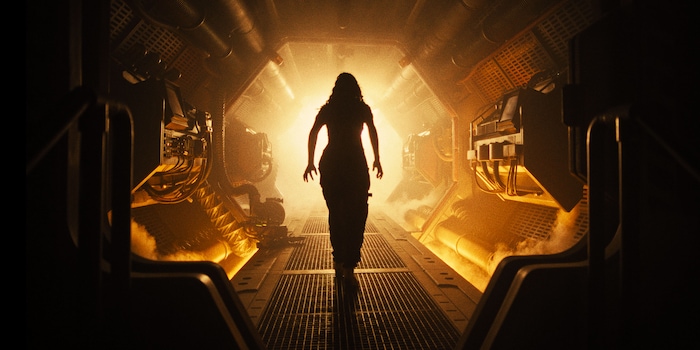
With its claustrophobic atmosphere and deadly creatures, Alien: Romulus is a gripping throwback to the cult franchise. Although the homage to the 1979 original is enthralling, it evidently has some weaknesses too.
Let’s get one thing out of the way first. There are no spoilers in this review. I won’t be mentioning anything that hasn’t already been revealed in trailers.
Alien: Romulus sees the iconic xenomorph return to the big screen – and expectations are running high. After all, director Fede Alvarez is no stranger to the horror genre. He counts Evil Dead and Don’t Breathe among the titles in his filmography. With this in mind, anything other than a return to the franchise’s claustrophobic roots would be a letdown.
Here’s what I can tell you now without revealing too much – if there’s one of the seven titles in the Alien franchise that has anything in common with the original, it’s this one. And, as much as I love the franchise, which offers pretty much everything from ingenious sequels to corny duds, it’s about damn time.
No matter which planet they’re on, the people working in the numerous mines of the Weyland-Yutani Corporation lead bleak, miserable lives. One of them is Rain (Cailee Spaeny), who, alongside her brother Andy (David Jonsson), is desperately trying to get out of her contract with the Corporation. When a mysterious, abandoned space station comes into the planet’s orbit, Rain and her friends see their chance to steal its cryo pods and escape the hellhole they’re living in.
What they don’t know is that although there’s no trace of human life on the vessel, it isn’t uninhabited. In fact, the deadliest, most merciless (and, some would say, perfect) life form in the universe has made a home for itself on board.
Do you remember what watching the first Alien movie was like? I certainly do. I must have been about twelve, and I was over at a friend’s house. He’d been given a copy of the movie on a burned DVD by his cousin, who’d got it from a random LAN party. Quite the privilege. Naturally, our parents were none the wiser. They’d have hit the roof if they’d known the true horror we’d brought into that childhood bedroom. That made the experience all the more thrilling.
S***, we were scared!
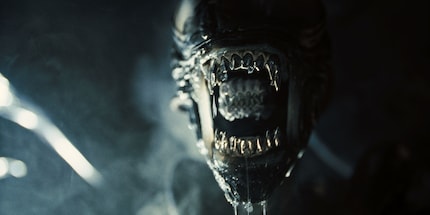
Alien, directed by Ridley Scott in 1979, wasn’t just any old horror movie. It was the birth of a completely new genre: sci-fi horror. Scott combined the story, set in a distant future where space travel and encounters with extraterrestrials are possible, with the threat of an unknown alien. Add to that the claustrophobic atmosphere of a spaceship, plus some of the most brutal death scenes of its time, and you get sheer terror.
This is exactly where Fede Alvarez’s Alien: Romulus draws the most inspiration. Just a few minutes in, I already feel like I’ve been transported back to my childhood. And it’s not just because Alien: Romulus is set between Alien (1979) and Aliens (1986). Instead, it’s the slow build-up of tension that reminds me of the original. Even when almost nothing’s happening, the suspense nearly kills me. It’s also the way the atmosphere of that bleak, filth-ridden future is perfectly captured, complete with nostalgic sound effects, noises and 1970s computer graphics.
Psychological horror, plain and simple. Just knowing that the optimistic crew are each doomed to meet a grisly end is enough to make me hold my breath as I watch them explore the abandoned space station, stumbling over hideously disfigured corpses.
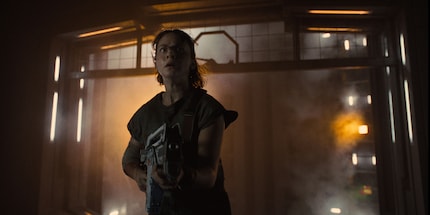
However, Alvarez doesn’t take quite as much time as Scott did in 1979 to finally reveal «his» alien. Unmasking the creature late in the game wouldn’t have worked. After all, forty-six years ago (yep, that’s how old the movie is) no one knew what H.R. Giger’s iconic monster looked like. Holding off on revealing it until deep into the second half of the movie was a masterstroke. At the end of the day, there’s nothing scarier than your own imagination.
Even back in 1986, James Cameron had to make do without the trick in his sequel Aliens. By then, the surprise effect had fizzled out. Rather than getting audiences’ hearts racing with suspense and atmosphere, Cameron made a deliberate decision to go for spectacular action scenes with loads of blood. Alvarez takes a similar approach for the resolution of the film. Although it’s likely this was a conscious choice, it doesn’t really fit in with the rest of his movie.
Don’t get me wrong, Alien: Romulus is never quite as action-focused as James Cameron’s Aliens. Nevertheless, its resolution feels kind of chaotic and messy because it lacks the clarity and structure of the first two acts.
Ridley Scott recently said something similar. Serving as a producer, Scott gave Alvarez creative freedom, while still ensuring he stayed true to the spirit of the original. Though extremely pleased with Alien: Romulus, he admitted there was «too much going on» in an early cut of the movie. It’s quite possible that he was talking about the resolution, which might seem bumpy to me because of the very changes he mentioned.
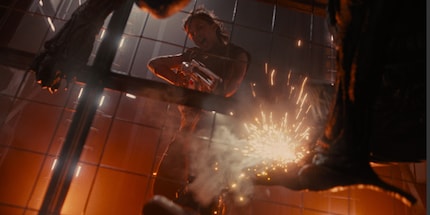
Still, that’s my biggest point of criticism. And it’s nowhere near major enough to significantly tarnish my overall impression of the film. The style of Alien: Romulus is simply too old-school for that (and I mean that as a compliment!)
Throughout the film, Alvarez makes use of practical effects, elaborately built sets and detailed miniatures, which are later placed in front of computer-animated backgrounds. A bit like Peter Jackson did in his celebrated Lord of the Rings series. I love that look – a look from the days when filmmakers had to come up with creative solutions to complicated problems. Saying «we’ll fix that later in post-production» simply wasn’t an option.
Unfortunately, it’s something of a dying art these days.
Another thing meriting a mention is the protagonists: they’re great. Young, but great. There’s no reason to fear that Alien: Romulus has strayed into the trashy teen-horror camp. This is primarily down to the two main actors, Cailee Spaeny and David Jonsson.
Jonsson in particular gives the kind of incredibly profound, heart-wrenching performance that’d probably get a hat-tip from Michael Fassbender himself. You’ll remember that in Prometheus, Fassbender played the ambivalent android David, one of the most fascinating characters in the entire franchise to date. David Jonsson could easily go toe to toe with him, but I can’t say any more without spoiling important details.
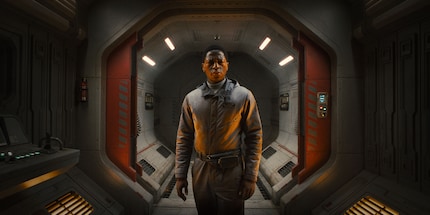
The rest of the cast take up space, without doing anything to stand out or detract from the film. Which is fine. This kind of movie doesn’t need to do any deep character work. In any case, the young actors build up a good level of chemistry early on in the movie. Enough for the viewer not to feel completely unbothered when their ribcages burst open in typical Alien fashion later on.
Without doubt, Alien: Romulus represents a strong return to the roots of the franchise. For the most part, anyway. By creating an oppressive atmosphere, slowly ramping up the tension and impressively mixing practical effects and CGI, director Fede Alvarez has succeeded in capturing the spirit of the original.
The film’s fumbled resolution is the only part that comes across as slightly chaotic. Ultimately, it’s trying to do too much. Nevertheless, the movie impresses on account of its old-school style and some strong acting performances, especially from David Jonsson. This makes Alien: Romulus a must-see for sci-fi horror fans, and a worthy successor to Ridley Scott’s 1979 classic. It’ll be released on 16 August.
Pro
Contra
I write about technology as if it were cinema, and about films as if they were real life. Between bits and blockbusters, I’m after stories that move people, not just generate clicks. And yes – sometimes I listen to film scores louder than I probably should.
Which films, shows, books, games or board games are genuinely great? Recommendations from our personal experience.
Show all